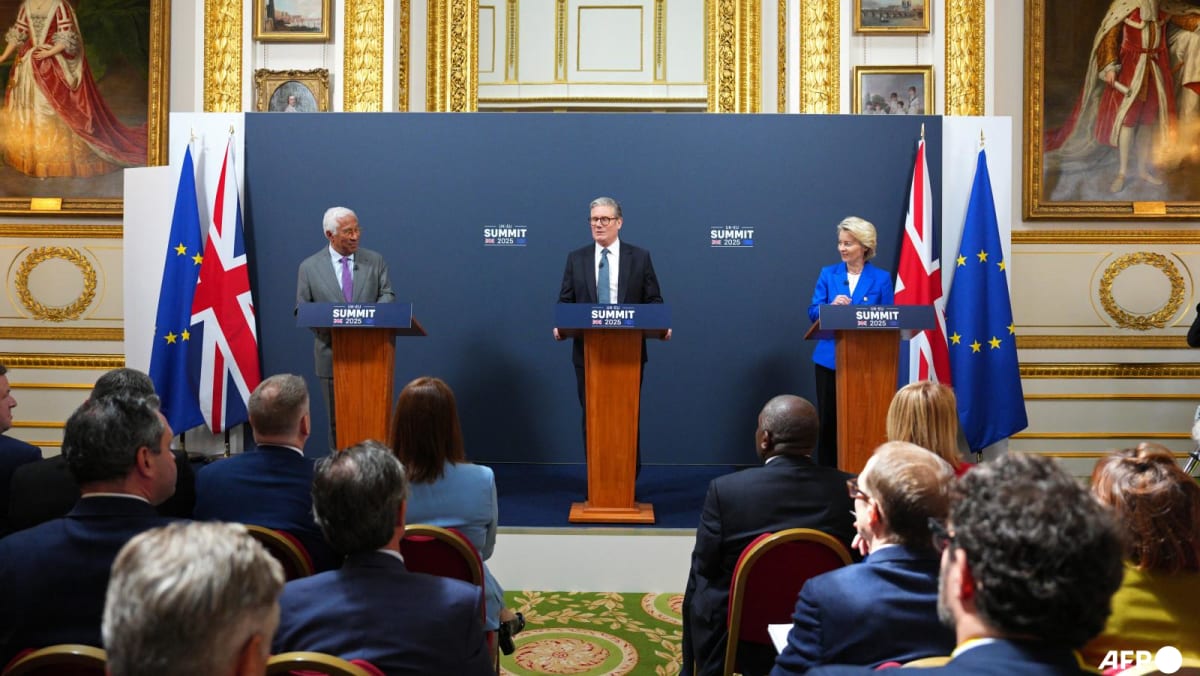LONDON/BRUSSELS: Britain agreed to the most significant reset of defence and trade ties with the European Union since Brexit on Monday (May 19) after United States President Donald Trump’s upending of the global order pushed the two sides to move on from their acrimonious divorce.
Nearly nine years after it voted to leave the bloc, Britain, the second largest defence spender in Europe, will take part in joint procurement projects. The sides also agreed to make it easier for UK food and visitors to reach the EU, and signed a contentious new fishing deal.
Trump’s tariffs, alongside warnings that Europe should do more to protect itself, forced governments around the world to rethink trade, defence and security ties, bringing British Prime Minister Keir Starmer closer to France’s Emmanuel Macron and other European leaders.
Starmer, who backed remaining in the EU in the Brexit referendum, also bet that offering benefits to Britons such as the use of faster e-gates at EU airports will drown out the cries of “betrayal” from Brexit campaigner Nigel Farage.
Flanked by EU Commission President Ursula von der Leyen and European Council President Antonio Costa, Starmer said the deal marked “a new era in our relationship”.
Von der Leyen said it sent a message to the world: “At a time of global instability, and when our continent faces the greatest threat it has for generations, we in Europe stick together”.
Britain said the reset with its biggest trading partner would reduce red tape for food and agricultural producers, making food cheaper, improve energy security and add nearly £$9 billion (US$12.1 billion) to the economy by 2040.
It is the third deal Britain has struck this month, after agreements with India and the US, and while it is unlikely to lead to an immediate economic boost, it could lift business confidence, drawing much-needed investment.
At the heart of the reset is a defence and security pact that will let Britain be part of any joint procurement and pave the way for British companies including BAE, Rolls-Royce and Babcock to take part in a €$150 billion (US$167 billion) programme to rearm Europe.
On fishing, British and EU vessels will have access to each other’s waters for 12 years – removing one of the UK’s strongest hands in any future talks – in return for a permanent reduction in paperwork and border checks that had prevented small food producers from exporting to Europe.
In return, Britain has agreed to the outline of a limited youth mobility scheme, with the details to be hammered out in future, and it is discussing participation in the Erasmus+ student exchange programme.
The agreement was denounced by Farage and the opposition Conservative Party, which was in power when Britain left the bloc and spent years negotiating the original divorce deal.
